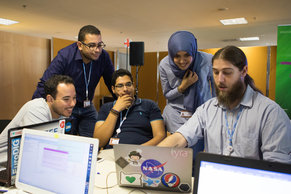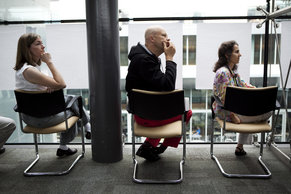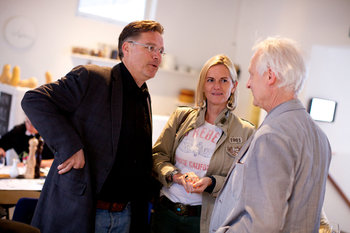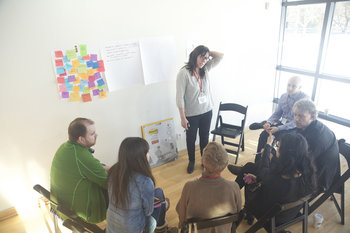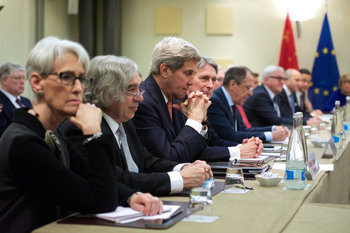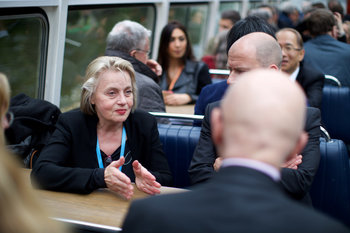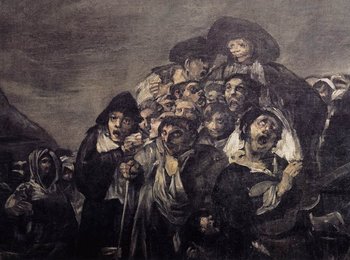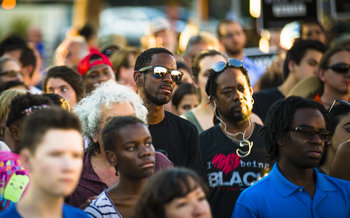Emergence
Emergence is a system that results from the choices of individual entities. For example, a city that emerges due to the construction activities of individuals as opposed to central planning by a government.Rights & Freedoms
Rights and freedoms give individuals authority over their own lives. For example, individual sovereignty that gives each individual the right to informed consent for medical procedures. This can be contrasted with mandatory medical procedures planned by a central authority such as a company that requires employees to undergo a variety of health tests each year as decided by the firm.Markets
Markets are competitive forums based on economic rights that set prices, allocate resources and distribute goods in a completely decentralized manner. This is extremely efficient as compared to a system of central planning whereby a bureaucratic elite make all economic decisions.Sovereignty
Sovereignty is the right of a government to govern a nation, often based on the consent of its people. This is used to resist attempts to centralize control at the global level by a large nation or an international organization.Regions & Cities
Regional and city governments serve to decentralize government functions. For example, a state that has a lower tax rate in order to stimulate its relatively weak economy as compared to states with more hard and soft infrastructure.Geographic Decentralization
Geographic decentralization is the practice of creating multiple locations for a function or activity. For example, a central government that locates tax offices in 12 different states in order to spread the economic benefits of such work.Delegation
Delegation of authority is a basic approach to decentralization whereby an individual grants elements of their authority to others. For example, a front desk manager at a luxury hotel who gives 12 senior staff members the authority to upgrade guests and issue refunds.Flat Organization
A flat organization is a hierarchy of two or perhaps three levels whereby most employees have a similar amount of authority. For example, a web design company with 3 managers and 200 designers who all have sufficient authority to do their jobs without consulting management.Self-Organizing Teams
A self-organizing team is a team that is given a mission but is allowed to pursuit this mission without much oversight or control by management. This is often done to allow for creativity and productivity by reducing administrative burden in the context of a large organization.Subsidiary
A subsidiary is a company that has a degree of independence from a company that owns it. For example, a large technology company that owns hundreds of smaller technology companies that gives them a reasonable amount of independence in order to avoid stifling innovation.Principles & Guidelines
Principles and guidelines are flexible and broadly applicable rules that leave room for interpretation. This allows an organization to handle grey areas, change and ambiguity in a somewhat consistent and decentralized way. For example, a school that has a principle that students achieve a high rate of attendance that allows for exceptions such that students who are facing some difficulty in their life need not be penalized.Culture
Culture is an informal and flexible system that emerges with the shared experiences of groups. Culture is inherently decentralized and can serve to shape behavior without rules being dictated by a central authority. For example, a team that has a norm of arriving on time for meetings without a system of monitoring and control by head office.Working Groups
Working groups are small teams that are created as needed to solve a particular problem. These serve to offload and decentralize work. For example, a neighborhood committee that designs a living street using local knowledge of the area.Long Tail
Long tail is a process that allows for great participation such that millions of people compete to create value. For example, bloggers who provide news and commentary that compete with traditional media owned by a small elite.Peer to Peer
Peer to peer is a type of technology architecture that creates functionality without any centralized services. For example, a system that uses cryptography to store financial records across thousands of computers owned by thousands of different people.Resilience
Decentralization is often used to make systems more resilient to stress. For example, a technology company with 40 data centers in different regions is more resilient to disasters that a firm with all of its computing facilities in a single city.Advantages
As compared to centralization, decentralization sometimes produces less unified and consistent results. However, it mostly has advantages over centralization. Potential benefits of decentralization include:
Efficiency
Decentralization can be extremely efficient such as a market that accurately sets prices to reflect supply and demand.
Anti-corruption
A centralized system that places power in the hands of a few people may be corrupted or unduly influenced by an elite. It is far more difficult to do this where authority is decentralized.
Resilience
Distributing things so that if one thing fails, the results are less tragic.
Diversity
Decentralization allows for diversity such as a city with many types of unique architecture as opposed to a city completely designed by a central government in a single style.
Creativity
Decentralization avoids the situation where an unimaginative bureaucratic elite crush creativity and innovation.
Adaptability
A decentralized system may adapt to a great variety of conditions including grey areas and ambiguity where centralization may fail. For example, a teacher who can identify a talent in a student that a centralized system of standardized testing misses.
Accuracy & Precision
Decentralization allows those closest to a situation to make decisions and solve problems. This allows for accurate and precise handling of situations where centralization is more of a blunt tool. For example, a farmer who knows that olives grow well on one side of a hill but not the other side.
Tactics
Empowering people to seize opportunities as they emerge. For example, a sales team that delegates negotiation so that a salesperson is free to work out a profitable deal without a cumbersome approvals process.
Notes
Centralization and decentralization aren't mutually exclusive such that it is common for an organization or society to attempt to use both approaches. For example, an airline that centralizes fleet management but decentralizes some customer service functions.| Overview: Decentralization | ||
Type | ||
Definition | The allocation of authority to multiple locations, organizations, teams and individuals. | |
Related Concepts | ||



